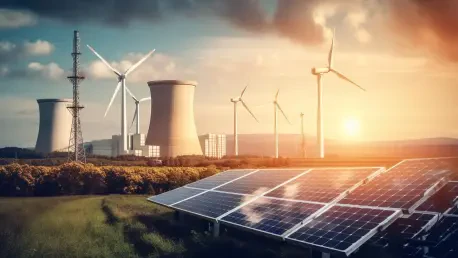
Germany's recent initiative to cut electricity taxes has sparked significant debate concerning potential distortions in market competition. The country's electricity costs have persistently ranked high on the global scale, necessitating consideration of fiscal relief for consumers. An initial

The photocatalysis industry is navigating a transformative phase, accentuated by advancements in defect engineering for materials like carbon nitride (CN). This metal-free semiconductor shows promising capability to efficiently degrade pollutants while simultaneously producing clean fuel. The

In recent years, global investment in clean energy technology has surged, with over $2 trillion injected into developing such resources annually. This trend reflects a critical shift across industries toward sustainable energy systems, driven by a keen awareness of economic, environmental, and

In a significant development for clean energy stakeholders, the Senate Finance Committee has unveiled a revised budget bill that softens the cuts to the Inflation Reduction Act (IRA) incentives, as initially proposed by the House. This revised budget bill is expected to have considerable

Amidst an escalating need for environmental sustainability and energy stability, Congressional Republicans have been rallying for an overhauled strategy that addresses clean energy tax credits. The plan they are advocating has sparked debates among policymakers and industry stakeholders, aiming to

In today's interview, we have Christopher Hailstone, a seasoned expert in energy management and renewable energy. Christopher is well-known for his insights into utilities, grid reliability, and security. With the recent corruption investigation involving the Indonesian state energy firm Pertamina,